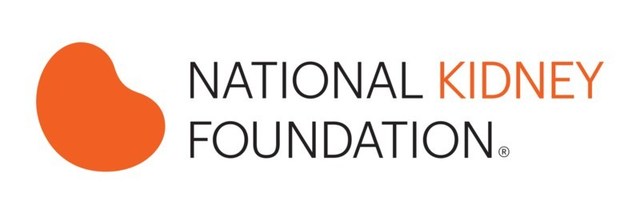The National Kidney Foundation’s Kidney Disease Outcomes Quality initiative reviews latest recommendations
|
NEW YORK, Dec. 16, 2020 /PRNewswire/ -- A new review of the best practices clinical care teams use in treating patients with kidney failure using peritoneal dialysis (PD) supports a more holistic and patient-centered approach to care and assessment of the quality of dialysis delivered. National Kidney Foundation's (NKF) Kidney Disease Outcomes Quality Initiative (KDOQI) supports the new direction recommended by the 2020 International Society for Peritoneal Dialysis (ISPD) overall and published its commentary in NKF's American Journal of Kidney Diseases (AJKD) today. The last time NKF released a KDOQI Clinical Practice Guideline on Peritoneal Dialysis Adequacy was in 2006. "KDOQI overwhelmingly endorses the ISPD new direction that physicians should avoid a 'cookie-cutter' approach to and assessment of peritoneal dialysis use in their patients," said lead author and KDOQI workgroup co-chair Isaac Teitelbaum, MD, Division of Nephrology, Department of Medicine, University of Colorado, Aurora, CO. "The best possible care may differ from patient to patient and is dependent on the experiences, wishes, and health status of each patient." The "KDOQI US Commentary on the 2020 ISPD Practice Recommendations for Prescribing High-Quality Goal-Directed Peritoneal Dialysis" was published today in the journal. NKF's KDOQI work groups have been developing evidence-based clinical practice guidelines for the care of kidney patients since 1997. World renowned for improving the diagnosis and treatment of kidney disease, these guidelines have changed the practices of healthcare professionals and improved countless lives since it began. "This KDOQI commentary is a wonderful resource for clinicians looking for innovative solutions to the challenge of providing more patient-centered care when prescribing PD," said Kerry Willis PhD, NKF Chief Scientific Officer. "It also highlights the clear need for patient-reported outcomes measures developed specifically for people treated with PD. This should be a priority for increased research funding." Peritoneal dialysis is one of two types of dialysis available to people with kidney failure. It is performed at home rather than in a center for hemodialysis. Peritoneal dialysis requires that a soft plastic tube (catheter) be surgically placed in the abdomen and a sterile cleansing fluid is then circulated through to filter the patient's blood every day. Some patients are able to perform the treatment less often than others, thereby improving their quality of life, provided that they are doing well clinically. This decision should made in conjunction with the treating physician. "Patients should be included in the clinician's prescription for treatment," Dr. Teitelbaum said. "Person-centered care and shared decision making are critical during the entire trajectory of care for people with kidney disease." Patients need to be empowered during their treatment with education and engagement, the authors wrote. The shift in this approach does pose some challenges, the authors acknowledged. Some providers may be uncomfortable with the change, while others may lack the appropriate training to engage their patients in this way, some patients have limited health literacy or are cognitively impaired, and finally there are structural challenges in the health care system that need transformation, the authors acknowledged. "However, the challenges are not insurmountable and should not deter a shift in practices and the culture," Dr. Teitelbaum said. To learn more about the commentary and the authors, please go to the article on AJKD by clicking here. Kidney Disease Facts About the American Journal of Kidney Diseases About the National Kidney Foundation Facebook.com
SOURCE National Kidney Foundation |





